-
 Bitcoin
Bitcoin $120100
1.16% -
 Ethereum
Ethereum $4329
2.25% -
 XRP
XRP $3.192
-0.22% -
 Tether USDt
Tether USDt $1.000
-0.01% -
 BNB
BNB $805.2
0.47% -
 Solana
Solana $178.7
-1.85% -
 USDC
USDC $0.9998
0.00% -
 Dogecoin
Dogecoin $0.2305
-1.62% -
 TRON
TRON $0.3445
1.17% -
 Cardano
Cardano $0.7940
-1.28% -
 Hyperliquid
Hyperliquid $44.44
-1.20% -
 Chainlink
Chainlink $21.86
-2.42% -
 Stellar
Stellar $0.4423
-0.15% -
 Sui
Sui $3.728
-3.84% -
 Bitcoin Cash
Bitcoin Cash $584.8
2.19% -
 Hedera
Hedera $0.2524
-2.87% -
 Ethena USDe
Ethena USDe $1.001
-0.02% -
 Avalanche
Avalanche $23.66
-0.78% -
 Litecoin
Litecoin $124.5
0.39% -
 Toncoin
Toncoin $3.399
1.77% -
 UNUS SED LEO
UNUS SED LEO $9.002
-0.44% -
 Shiba Inu
Shiba Inu $0.00001327
-2.10% -
 Uniswap
Uniswap $11.42
2.58% -
 Polkadot
Polkadot $3.957
-2.50% -
 Cronos
Cronos $0.1696
4.50% -
 Dai
Dai $1.000
0.00% -
 Ethena
Ethena $0.8139
3.04% -
 Bitget Token
Bitget Token $4.442
-0.38% -
 Monero
Monero $271.2
2.93% -
 Pepe
Pepe $0.00001168
-2.91%
What are the main differences between contract trading and spot trading?
Contract trading offers leverage and flexibility but involves higher risk, while spot trading provides ownership of assets and is more suitable for beginners with lower risk tolerance.
Feb 21, 2025 at 09:00 am
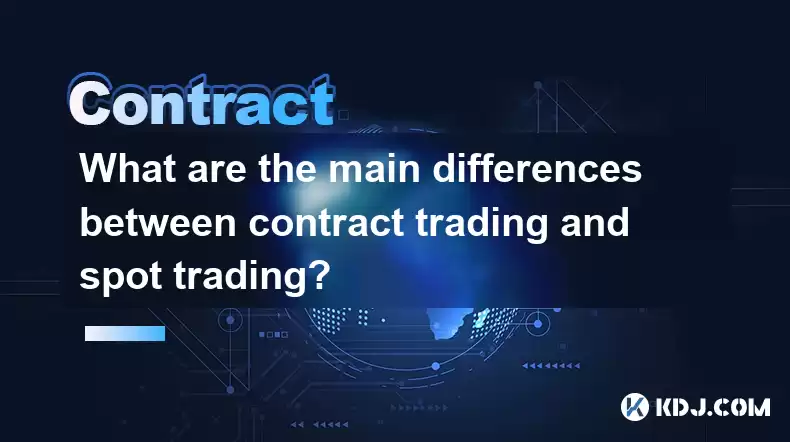
Key Points:
- Contract Trading vs. Spot Trading: An Overview
- Advantages of Contract Trading
- Disadvantages of Contract Trading
- Advantages of Spot Trading
- Disadvantages of Spot Trading
- Suitability of Contract Trading and Spot Trading
- FAQs on Contract Trading and Spot Trading
Contract Trading vs. Spot Trading: An Overview
Contract trading and spot trading are two distinct trading methods employed in the cryptocurrency space. While both involve buying and selling digital assets, they differ in several key aspects.
Contract Trading:
- Involves trading futures or perpetual contracts representing the underlying asset.
- Enables traders to speculate on the future price of an asset without owning it directly.
- Offers leverage, allowing traders to amplify their positions with borrowed funds.
Spot Trading:
- Involves trading the actual asset on a spot market.
- Requires traders to hold the asset in a wallet before selling it.
- Does not offer leverage.
Advantages of Contract Trading
- Leverage: Contract trading allows traders to borrow funds to amplify their trading positions, potentially multiplying both profits and losses.
- Flexibility: Contracts can be traded in various asset pairings, providing traders with greater flexibility in their trading strategies.
- Opportunities for Short Selling: Contract trading enables traders to bet against an asset's price, allowing them to profit from downward market movements.
- Automated Trading: Contract trading platforms offer automated trading tools, enabling traders to set predefined parameters for automated order execution.
Disadvantages of Contract Trading
- Higher Risk: Leverage can magnify both profits and losses, potentially resulting in significant financial losses.
- Liquidation Risk: If the market moves against a trader's leveraged position, the exchange may liquidate their holdings, resulting in substantial losses.
- Fees: Contract trading platforms charge various fees, including transaction, leverage, and funding fees.
- Complexity: Contract trading requires a more advanced understanding of market dynamics and trading strategies.
Advantages of Spot Trading
- Ownership of Assets: Spot trading allows traders to hold actual cryptocurrency assets, providing them with full ownership and control.
- Lower Fees: Spot trading platforms typically charge lower fees compared to contract trading platforms.
- Simplicity: Spot trading is relatively straightforward, making it suitable for traders of all experience levels.
- Transparency: Spot markets provide real-time order book information, offering traders greater transparency and control.
Disadvantages of Spot Trading
- Limited Profit Potential: Spot trading does not offer leverage, limiting the potential for outsized profits.
- Market Volatility: Cryptocurrency markets are highly volatile, which can make spot trading riskier for less experienced traders.
- Storage Security: Spot trading requires traders to securely store their cryptocurrency holdings, which can be vulnerable to theft or loss.
- Ownership Responsibilities: As asset owners, spot traders are responsible for managing their private keys and protecting their holdings.
Suitability of Contract Trading and Spot Trading
The suitability of contract trading or spot trading depends on a trader's experience level, risk tolerance, and trading goals.
- Contract Trading: Suitable for experienced traders seeking higher profit potential and flexibility. Requires a deeper understanding of market dynamics and risk management.
- Spot Trading: Suitable for traders of all experience levels. Offers lower risk and a more straightforward trading experience. Ideal for those seeking to acquire and hold cryptocurrency assets.
FAQs on Contract Trading and Spot Trading
Q: What is the difference between margin and leverage in contract trading?
A: Margin refers to the amount of funds deposited by a trader to open a leveraged position. Leverage is the ratio between the borrowed funds and the trader's margin. Higher leverage amplifies both profits and losses.
Q: How do funding fees work in contract trading?
A: Funding fees are paid or received by traders to adjust for the difference in interest rates between perpetual contracts and the underlying spot market.
Q: What is slippage in spot trading?
A: Slippage occurs when the executed trading price differs from the intended price due to rapid market fluctuations or low liquidity.
Q: How do I keep my cryptocurrency assets secure in spot trading?
A: Use hardware wallets, multi-signature wallets, or reputable custodians to securely store your private keys and protect your holdings from theft or loss.
Disclaimer:info@kdj.com
The information provided is not trading advice. kdj.com does not assume any responsibility for any investments made based on the information provided in this article. Cryptocurrencies are highly volatile and it is highly recommended that you invest with caution after thorough research!
If you believe that the content used on this website infringes your copyright, please contact us immediately (info@kdj.com) and we will delete it promptly.
- Bitcoin, Solana, MAGACOIN FINANCE: Navigating the 2025 Crypto Landscape
- 2025-08-12 00:30:13
- Cardano, ADA Holders, and Layer Brett: A Meme Coin with Real Utility?
- 2025-08-12 00:50:12
- Bitcoin, Michael Saylor, and Savvy Investors: A New Era of Digital Assets
- 2025-08-12 00:30:13
- Crypto Presales in 2025: Spotting the Next Big Thing with Analyst Insights
- 2025-08-12 00:50:12
- Cloud Mining in 2025: Bitcoin, Litecoin, and the Quest for Passive Income
- 2025-08-12 00:55:32
- Token Security, Agentic AI, Cybersecurity Guide: Navigating the New Frontier
- 2025-08-11 23:00:12
Related knowledge
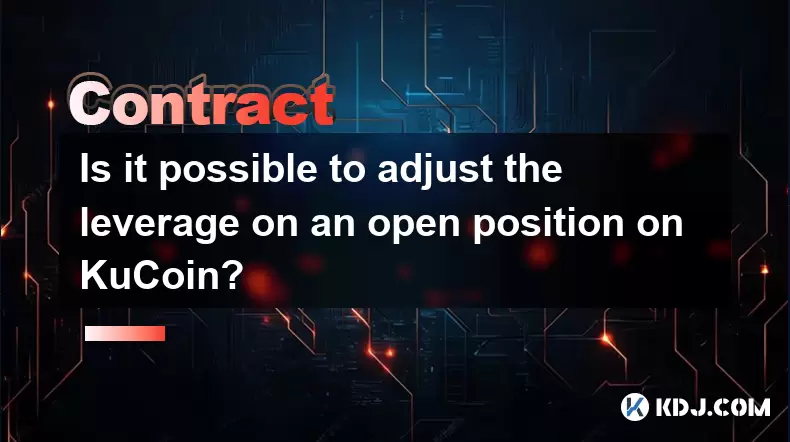
Is it possible to adjust the leverage on an open position on KuCoin?
Aug 09,2025 at 08:21pm
Understanding Leverage in KuCoin Futures TradingLeverage in KuCoin Futures allows traders to amplify their exposure to price movements by borrowing fu...
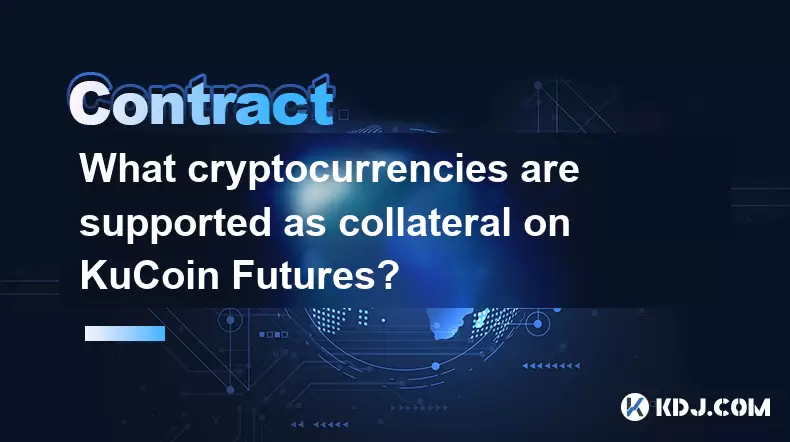
What cryptocurrencies are supported as collateral on KuCoin Futures?
Aug 11,2025 at 04:21am
Overview of KuCoin Futures and Collateral MechanismKuCoin Futures is a derivatives trading platform that allows users to trade perpetual and delivery ...
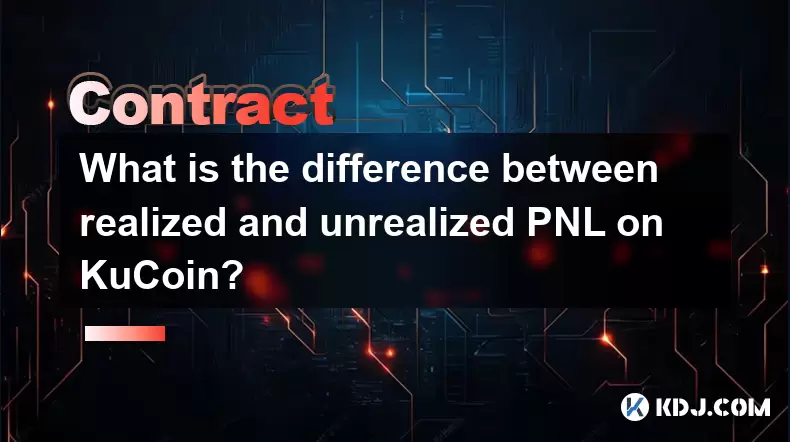
What is the difference between realized and unrealized PNL on KuCoin?
Aug 09,2025 at 01:49am
Understanding Realized and Unrealized PNL on KuCoinWhen trading on KuCoin, especially in futures and perpetual contracts, understanding the distinctio...
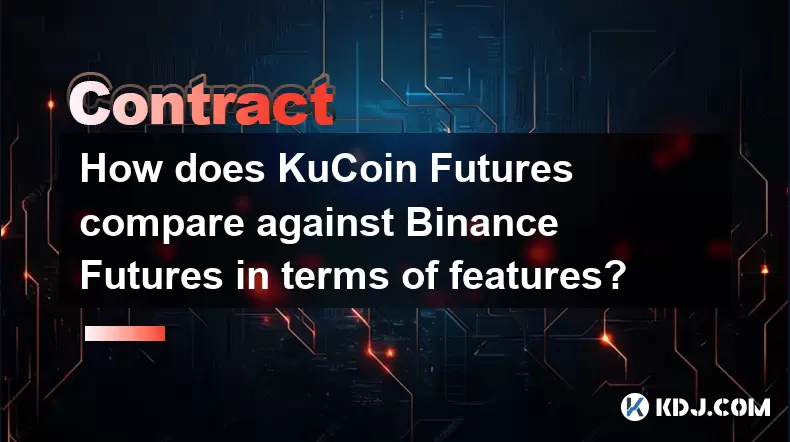
How does KuCoin Futures compare against Binance Futures in terms of features?
Aug 09,2025 at 03:22am
Trading Interface and User ExperienceThe trading interface is a critical component when comparing KuCoin Futures and Binance Futures, as it directly i...
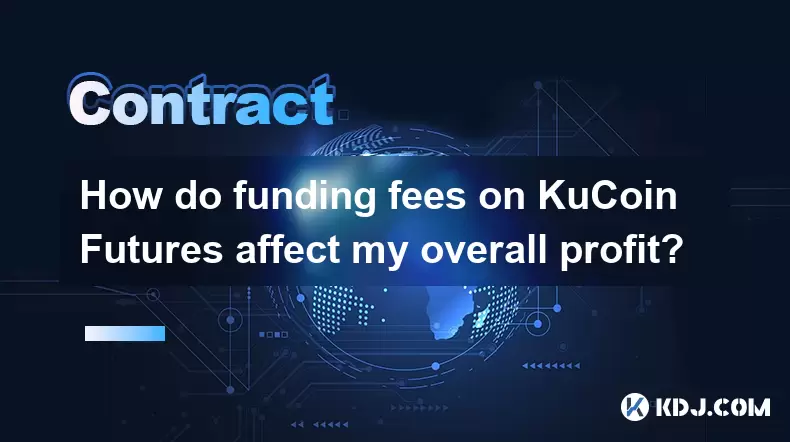
How do funding fees on KuCoin Futures affect my overall profit?
Aug 09,2025 at 08:22am
Understanding Funding Fees on KuCoin FuturesFunding fees on KuCoin Futures are periodic payments exchanged between long and short position holders to ...
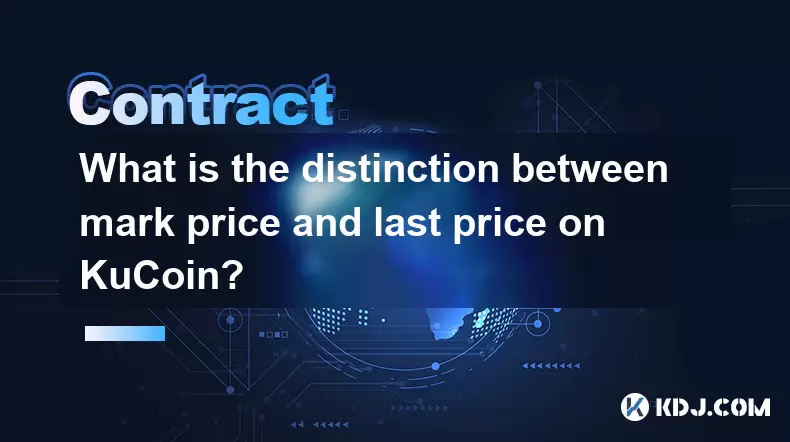
What is the distinction between mark price and last price on KuCoin?
Aug 08,2025 at 01:58pm
Understanding the Basics of Price in Cryptocurrency TradingIn cryptocurrency exchanges like KuCoin, two key price indicators frequently appear on trad...

Is it possible to adjust the leverage on an open position on KuCoin?
Aug 09,2025 at 08:21pm
Understanding Leverage in KuCoin Futures TradingLeverage in KuCoin Futures allows traders to amplify their exposure to price movements by borrowing fu...

What cryptocurrencies are supported as collateral on KuCoin Futures?
Aug 11,2025 at 04:21am
Overview of KuCoin Futures and Collateral MechanismKuCoin Futures is a derivatives trading platform that allows users to trade perpetual and delivery ...

What is the difference between realized and unrealized PNL on KuCoin?
Aug 09,2025 at 01:49am
Understanding Realized and Unrealized PNL on KuCoinWhen trading on KuCoin, especially in futures and perpetual contracts, understanding the distinctio...

How does KuCoin Futures compare against Binance Futures in terms of features?
Aug 09,2025 at 03:22am
Trading Interface and User ExperienceThe trading interface is a critical component when comparing KuCoin Futures and Binance Futures, as it directly i...

How do funding fees on KuCoin Futures affect my overall profit?
Aug 09,2025 at 08:22am
Understanding Funding Fees on KuCoin FuturesFunding fees on KuCoin Futures are periodic payments exchanged between long and short position holders to ...

What is the distinction between mark price and last price on KuCoin?
Aug 08,2025 at 01:58pm
Understanding the Basics of Price in Cryptocurrency TradingIn cryptocurrency exchanges like KuCoin, two key price indicators frequently appear on trad...
See all articles

























































































